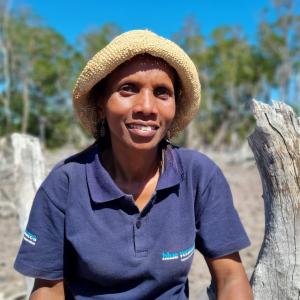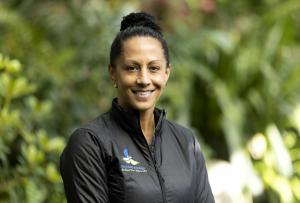Cross-sector collaboration, local knowledge and a focus on youth engagement lead to positive environmental, social, and economic outcomes.
DARWIN, NT, AUSTRALIA, September 29, 2023 /EINPresswire.com/ -- A vast, community-led mangrove restoration project in Madagascar and an ambitious mountain restoration initiative in New Zealand offer inspiring examples of the power of ecological restoration to unite, strengthen, and build community in diverse regions and biomes around the world.In addition to well-recognized climate-change mitigation, mangroves support the livelihoods of an estimated 2 million coastal people in Madagascar. But unsustainable harvest and lack of effective management had resulted in severe degradation. Through expansive collaboration with 22 community groups and the Madagascar Ministry of Environment, social enterprise Blue Ventures has replanted 14.5 million mangrove trees using the eight Principles in the framework provided by SER’s International Principles and Standards for Ecological Restoration.
“This project has been transformational for coastal communities on multiple levels,” said Lalao Aigrette, National Technical Advisor for Mangroves and Blue Carbon for Blue Ventures in Madagascar. “Combining local knowledge and scientific observations is a powerful way to inform mangrove restoration and adaptive management. It shows how blue carbon finance can act not only as an incentive for integrated management of forests and fisheries, but also to strengthen social cohesion when projects are implemented in a transparent and equitable manner.”
Taranaki Mounga Project is a landscape-scale ecological restoration project on the west coast of New Zealand’s North Island. Much of the native biodiversity in the land surrounding the revered volcanic peak of Taranaki Maunga had been degraded due to introduced predators such as wild goats, weasels, and stoats. The cross-sector collaboration between the Department of Conservation, Taranaki iwi Chairs forum, and philanthropic investors has enabled the restoration of ecological resilience and natural biodiversity. This includes the re-introduction of kiwi and toutouwai back into the landscape after many years of absence. Just this month, ownership of Taranaki Mounga was transferred back to the Taranaki and the mountain was granted legal personhood; setting the stage for continued long-term restoration of the land and community.
“As we work to restore Taranaki Maounga, we are doing it to ensure that our children are able to witness and enjoy the beauty and healing of our most remarkable and sacred natural areas,” said Sera Gibson, Project Manager with Taranaki Mounga Project in New Zealand. “This is why we can only be successful if we do it together. We cannot underestimate the impact of engaging and educating our local communities, in particular our youth. By reconnecting them with their mountain, we offer them a sense of ownership and belonging, which in turn inspires them to protect these spaces for generations to come.”
Both case studies illustrate the importance of collaborative action between government, local communities and Indigenous peoples, restoration scientists and practitioners, and corporations. They demonstrate that successful restoration happens by setting clear standards-based goals that enable impacts to be measured and communicated.
In Australia, the Restoration Decade Alliance, of which SER2023 co-host SER-Australasia is a member, today announced its roadmap to restoration success in Australia. It calls for the development of a National Restoration Plan to repair degraded and damaged ecosystems across the country. The Alliance, a group of 21 Australian non-profit restoration organizations, emphasized the need for a whole-of-community approach to restoration and signaled the need for greater understanding of the economic value of restoration and its potential to address declining biodiversity and the need for a more restorative relationship between people and the rest of nature, particularly drawing inspiration from First Nations Australians. The full statement can be viewed here.
###
About the Society for Ecological Restoration
The Society for Ecological Restoration (SER) advances the science, practice and policy of ecological restoration to sustain biodiversity, improve resilience in a changing climate, and re-establish an ecologically healthy relationship between nature and culture. An international non-profit organization with over 5,000 members in more than 110 countries, we actively promote participatory, knowledge-based approaches to restoration. Learn more about our work at www.ser.org.
About the UN Decade on Ecosystem Restoration
The UN Decade on Ecosystem Restoration 2021-2030, led by the United Nations Environment Programme, the Food and Agriculture Organization of the United Nations and its partners, covers terrestrial as well as coastal and marine ecosystems. As a global call to action, it will draw together political support, scientific research and financial muscle to massively scale up restoration. Find out how you can contribute to the UN Decade. Follow #GenerationRestoration.
For more information please contact:
Media Contact - Society for Ecological Restoration
Florencia Panizza
florencia@claro-comm.com
Media Contact - UN Decade on Ecosystem Restoration
Moses Osani
Public Information Officer,
UN Environment Programme (UNEP)
moses.osani@un.org
SER2023 Conference Contact:
Bethanie Walder
Society for Ecological Restoration
bethanie@ser.org
Florencia Panizza
Claro Communications Consulting
florencia@claro-comm.com
Visit us on social media:
Facebook
Twitter
LinkedIn
Instagram
Other





